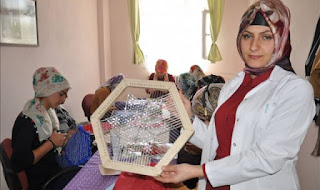WTO at 60: six decades of multilateralism

But then frankly, where do we stand after 60 years of multilateralism in international trade? Director General Lamy would be quick to point out that all is not over. There is still a lot which the WTO is capable of and in fact doing with the negotiations continuing on other aspects of the matter such as anti-dumping, textiles, etc. And I would counter-argue that the success of an institution is not determined by the work it does on issues which are ancillary to the main objectives which it promotes but instead is determined by how well it pursues the main objectives which it is meant to serve and in case of WTO; free and fairer trade.
It is recognized in the WTO preamble itself [i.e. the Preamble to the Marrakesh Agreement establishing the WTO] that "relations in the field of trade and economic endeavour should be conducted with a view to raising standards of living, ensuring full employment and a large and steadily growing volume of real income and effective demand". But then what has it done to ensure that the developmental difference are bridged up by designing facilitating terms to trade? I am yet to find an occasion either in the texts or in practice where this has been done.
Take for example the TRIPs Agreement, which has brought to the DSB more number of countries than any other Agreement and has ensured that the countries which cannot provide food security for their citizens ensure that the IPRs of foreign authors and inventors are protected. Similar is the case with the anti-dumping Agreement whose strict rules for imposing anti-dumping duties have ensured that it such duties can be challenged at length in the DSB and thus take away a trade-protection-tool from the hands of many a countries who invoke it genuinely.
It may be a case that even developing and least-developed countries have got a tool to ensure that they can set themselves equally off with the developed countries by invoking the terms of the various agreements and getting them implemented through the DSB. But then again, the political pressures and the green-chambers have ensured that it doesn't happen that way. Had it been that way, I am sure the developing countries would not have to clout through G-110 to ensure that they are heard (mark the words 'heard') at the WTO about the ill-cries of their producers and traders who fail to get market-access in the developed countries.
It may be a good face-saving exercise to sing the saga of the 60 years gone and the achievement of the times, but then without facing the reality and the contentious future, I am not sure what purpose it serves.


Yorumlar
Yorum Gönder